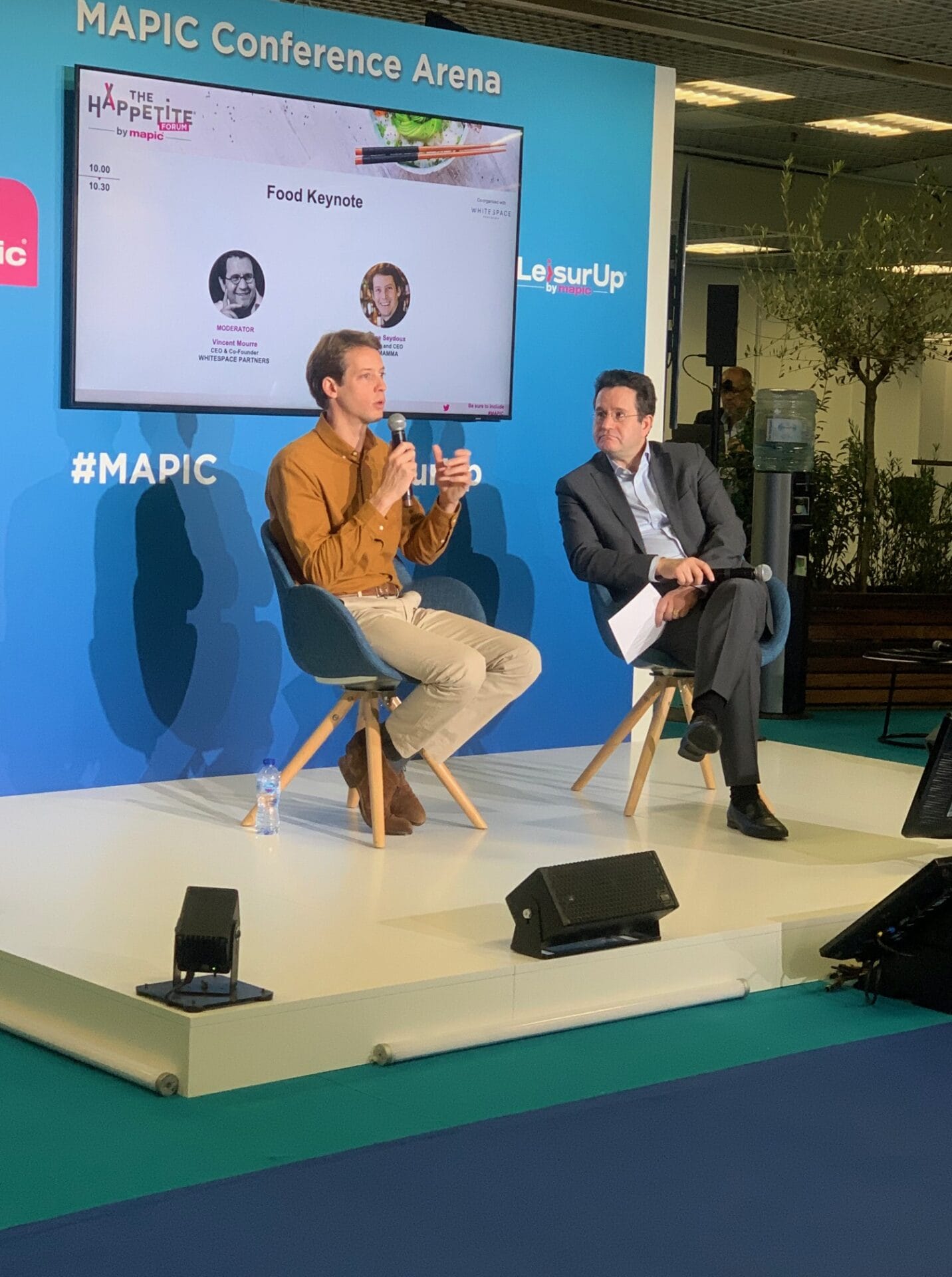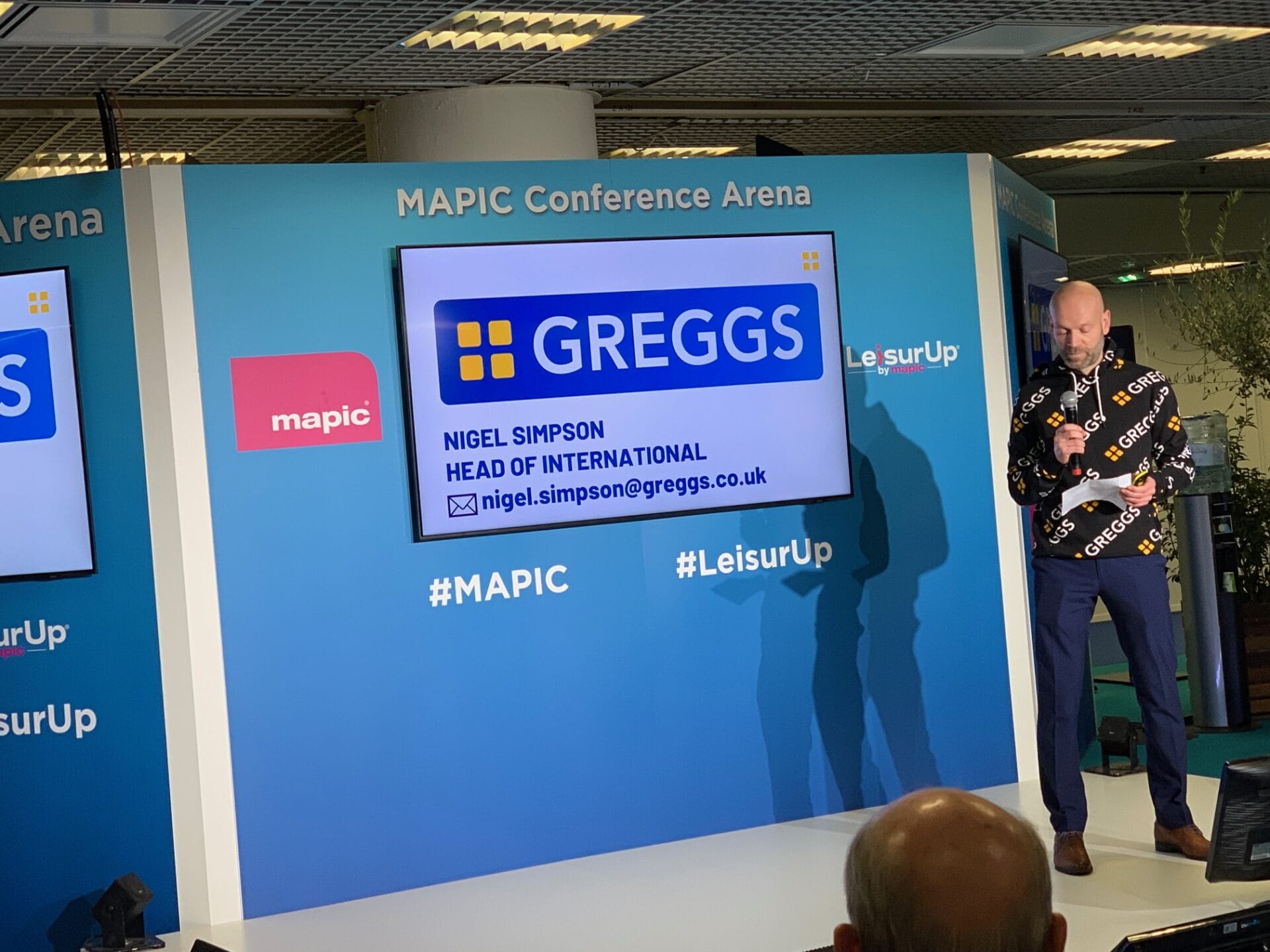Reappraising the value of physical space at MAPIC .

© MAPIC
Leaders in retail property, food & beverage and leisure came together in the south of France for the annual MAPIC event where the value of physical space to the retail sector was fully recognised after online took the upper hand during the pandemic.
But the model has to increasingly involve greater experiences including food & beverage offerings and leisure components that move things on from the physical environment simply being about selling goods.
Jonathan Doughty, chairman of Whitespace Partners – that advises various F&B and leisure brands, says: “Retail cannot be the only leg of the stool. Food & beverage and leisure is becoming more of the mix not just in shopping centres but also in transit hubs and offices.”
This is very much reflected in the activities of property company Ingka Centres that runs shopping centres anchored by Ikea stores. Cindy Anderson, managing director of Ingka Centres, revealed how the company is transforming its centres into meeting places that take them beyond purely shopping.
Alongside an Ikea stores the idea is to create more community-focused centres based on experiences and this involves it partnering with specialists such as Industrious that is helping it open co-working spaces. Jamie Hodari, co-founder & CEO of Industrious, says: “Workplaces in retail malls are among our most successful. It’s the pattern of the way people behave today, they want to mix work with other parts of their life – such as yoga sessions, seeing friends, and shopping on their way home.”
Another partnership involves Kerb, which is helping Ingka open plant-forward food courts called Saluhallof which the first will shortly open in San Francisco. Adding food and drink into the retail space is not new but it has proved to be an increasingly important part of the mix in shopping centres and on high streets. F&B is able to inject a night time element into shopping environments and make them more of a destination as well as boosting dwell times.
At the Trafford Centre in Manchester food and drink has been an integral part of the offer since the mall first opened but changes are afoot, according to Kate Bevin, leasing director at Pradera Lateral – that operates the Trafford Centre, who says the long-standing The Orient food court is heading for a more contemporary look and feel that will also see an influx of more local food brands. “There are opportunities to theme it more contemporary. We’re at the concept stage with some new brands coming in. There will be lots to share in Q1 2024,” she says.
Looking for a piece of the food action on a global basis is Greggs that has continued to expand dramatically in the UK and now sees potential for its food-to-go proposition in international shopping centres.
Nigel Simpson, head of international at Greggs, says: “The time feels right. In the UK we’ve strong growth and a stores pipeline. At some point we will need to go outside the UK to keep the growth going. It now feels right to look overseas.”

© MAPIC
Already enjoying an international footprint is Big Mamma that operates 24 restaurants in five countries. Tigrane Seydoux, co-founder & CEO of Big Mamma, says the company had an international vision from the early days – it was set up by French co-founders selling Italian cuisine. Despite the sceptics questioning its model it has been a roaring success: “We saw many people in the industry who said don’t do it. The restaurants are all different – with their price points, operating models and locations.”
The company is currently in the UK, Italy, Germany, France and Spain and along with expanding further in these existing European countries Big Mamma has plans to also open up into Dubai in 2024 and the US, with the latter likely involving a tier two or three city such as Philadelphia rather than New York City.
There is very much a playful character to the Big Mamma restaurants, which sits well with diners who are wanting more of an experience when they venture out. This is being played out in the accelerating element of leisure within shopping environments that includes the likes of Flight Club, F1 Arcade, Sixes, Putt Shack and axe throwing concept Whistle Punks.
Such elements are proving particularly appealing to younger consumers as shown by research from Leisure Development Partners (LDP), which found 42% of 18-35-year-olds want leisure venues near their house and 54% would visit a shopping centre more often if they housed such components. As many as 77% of Gen Zs say these amenities would encourage them to visit a mall versus an average of 54% across the whole sample.
Yaël Coifman, senior partner at LDP, says providing these experience-driven elements has various upsides: “There is a positive impact from these entertainment concepts. If it is in the centre then people will travel further so it extends the catchment area. It can be capital intensive and margins are a challenge, however, it increases footfall to the rest of the shopping centre.”
For health & beauty retailer Rituals the experience/entertainment aspect of its model involves offering an increasing amount of services, according to Raymond Cloosterman, founder & CEO of Rituals, who says: “Our dream is to claim the wellbeing position in health & beauty. It’s a unique proposition that goes beyond products alone to include services and content. We’ve mind spas offering customers the opportunity to relax their minds.”
The company also includes regular spas, with various treatments and massages, in many of its stores and has sometimes relocated to larger outlets in order to deliver a fuller offer to its customers. Rituals’ unique position as a mid-priced brand competing with the luxury goods industry took many years to secure a successful place in the industry but Cloosterman now says the company continues to rapidly expand and physical stores are integral to its strategy – generating 75% of its sales.
Although as much as 95% of group turnover is currently derived from Europe he reveals that there will be an increased focus on Asia as part of the company’s 10-year plan that it put in place two years ago. Europe still represents an avenue for great growth – with plans for 500-600 more stores on the continent – to add to its existing 1,200 outlets – there is a longer-term strategy to venture further afield. “When there is a slowdown in Europe then we’ll have a new opportunity in Asia,” he explains.
Cloosterman is also very aware of the sustainability credentials of Rituals and highlights how the company has to balance things like packaging – whereby luxury goods typically involve a lot of smart packaging but he wants to develop a more environmentally-friendly approach for his business.
He cites Black Friday as also going against the principles of Rituals: “It’s a sad concept involving throwing away margin for a US concept. We started doing it but then [adopted] Green Friday offering a discount on refills. It’s the way to go. The business concept of Black Friday is stupid and people are over-consuming because of it.”
